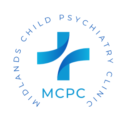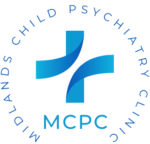- Awesome Services
Anxiety Disorder
- Anxiety Disorder
Explore How Can We Help You

Anxiety Disorder
Anxiety disorders in young people refer to a group of mental health conditions characterized by excessive worry, fear, or apprehension that can significantly impact their daily lives. These disorders can manifest in various ways and may affect children and adolescents differently. Common types of anxiety disorders in young people include:
- Generalized Anxiety Disorder (GAD):
- Excessive and uncontrollable worry about various aspects of life, such as school performance, friendships, family issues, or personal safety.
- Physical symptoms may include restlessness, muscle tension, fatigue, and difficulty concentrating.
- Social Anxiety Disorder:
- Intense fear of social situations and a persistent worry about being judged or embarrassed.
- Avoiding social activities makes it challenging for young people to form and maintain friendships.
- Separation Anxiety Disorder:
- Excessive fear or anxiety about separation from caregivers or loved ones.
- Physical symptoms like headaches, stomach aches, or nausea may occur when faced with the prospect of separation.
- Panic Disorder:
- Recurrent panic attacks characterized by sudden and intense episodes of fear or discomfort.
- Physical symptoms during panic attacks may include a racing heart, sweating, trembling, and a feeling of impending doom.
- Specific Phobias:
- Intense and irrational fears of specific objects or situations, such as animals, heights, or flying.
- Young people may go to great lengths to avoid the feared stimuli.
- Obsessive-Compulsive Disorder (OCD):
- Obsessions are intrusive and unwanted thoughts, images, or urges.
- Compulsions are repetitive behaviors or mental acts performed in response to the obsessions to alleviate anxiety.
Key Features and Considerations:
- Anxiety disorders often coexist with other mental health conditions, such as depression or attention-deficit/hyperactivity disorder (ADHD).
- Physical symptoms, like headaches or stomach aches, are common manifestations of anxiety in children and adolescents.
- Anxiety can impact academic performance, social relationships, and overall well-being.
Treatment and Support:
- Psychotherapy, particularly cognitive-behavioral therapy (CBT), is often effective in treating anxiety disorders in young people.
- Medication may be considered in more severe cases under the guidance of a healthcare professional.
- Support from family, friends, and school personnel is crucial in creating a supportive environment for young individuals dealing with anxiety.

